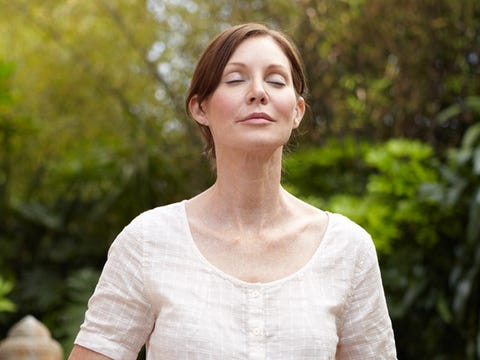It can help your body fight infection and recover after ops
- Researchers have found that classical music can lower blood pressure
- It improved both short-term and long-term memory in people with dementia
- Reduced pain for patients having hernia surgery under general anaesthetic
Whether it's singing in a choir, listening to Bach in the car or dancing to disco, most people enjoy some form of music - and increasingly it is being shown to have health benefits, too.
As the Mail reports today, researchers have found that classical music - especially compositions by Giuseppe Verdi - can significantly lower the listener's blood pressure. And last month, a British study found that regularly listening to music improved both short-term and long-term memory in people with dementia. Music therapy is also used in aiding stroke patients and to help those with Parkinson's learn to walk again.
Here we explore how listening to, learning and playing music helps...
How songs reduce blood pressure
One of the most intriguing ways in which music improves health is its effect on the heart and circulation.
In a 2008 study at the University of Maryland Medical Centre in the U.S., researchers measured ten healthy people's blood pressure as they listened to music of their choice. Their blood vessels dilated by 26 per cent after listening to music they found 'joyful', compared with 19 per cent after watching a funny video and 11 per cent after listening to relaxing sound recordings.
Keeping blood pressure low means the blood vessels are less likely to stiffen and become blocked, which can lead to heart disease and attacks. Dr Michael Miller, the cardiologist who led the study, now prescribes listening to music to patients.
'We see the effects immediately, which suggests there is a direct effect on the blood vessels,' he says. 'Music seems to harmonise the body's autonomic nervous system, which is responsible for involuntary actions such as heart rate, digestion and perspiration.'
Dr Miller thinks there maybe an evolutionary explanation. 'Music was part of our ancestors' socialisation process,' he says. 'It enabled us to form and develop relationships important for our survival.'

Other research has shown that listening to favourite music triggers the release of nitric oxide, which helps blood vessels maintain elasticity and function.
Bach cuts surgery pain
Many surgeons listen to music while operating, and it may be good for patients, too - even while they're under anaesthetic.
A 2005 Swedish study of 75 patients having hernia surgery under general anaesthetic found that those who had music playing during their operation reported less pain afterwards.
This is thought to be because music lowers stress hormone levels and may trigger the release of oxytocin, a hormone that boosts relaxation and tolerance of pain.
Listening to music may help the body defend itself from disease and infection, too. A review of 400 studies, published in 2013 by McGill University, in Canada, found music raised levels of natural 'killer cells'. British and German research published in 2008 showed listening to 50 minutes of dance music raised levels of antibodies in volunteers' bodies, probably because it reduced stress.A 2011 study, published in Frontiers in Psychology, found patients who listened to a range of 'joyful' music - including Bach and Louis Armstrong - while having a hip replacement needed less anaesthetic and had lower levels of the stress hormone cortisol.
It helps with dementia
A study last month found that dementia patients who heard a live performance by a singer, then listened to her songs and those of others on MP3 players, communicated and remembered better.
Four weeks after the experiment, many were able to recall where they were, the time of day and people's names. Their memory of recent and past events also showed improvement.
'Often music triggers a memory, and not just a song but maybe the time and place when the person heard it,' says Helen Odell-Miller, professor of music therapy at Anglia Ruskin University.
Professor Odell-Miller has also found making music using instruments, singing and clapping helps dementia patients communicate. When cognitive function declines, people may not find the words they need to express themselves, she says. 'Music helps them find a new way to show how they are feeling, which improves relationships with their carers.'
Other research supports her findings. A trial published in the journal Aging & Mental Health in 2013 found dementia patients needed less antipsychotic and antidepressant medication after six weeks of music therapy and were less agitated than those who had standard care.
A study of twins published in January found those who played a musical instrument were 36 per cent less likely to develop dementia. One theory is learning an instrument keeps the brain 'fitter' and more able to resist age-related damage.
...and improves heart health
Music also improves heart rate variability - the intervals between heartbeats. 'Heart rate variability is how our heart responds to stress,' says Dr Miller. 'In a healthy person it tends to be quite variable - sometimes 60 beats per minute (bpm), sometimes 65, sometimes 70.
'Good heart rate variability is a predictor that you're not in danger of developing a major heart problem in the near future.
'If it's 90bpm all the time, the heart doesn't have the ability to adapt to everyday stressors.'
This is especially risky if you've had a heart attack already, Dr Miller says.
He adds that no particular genre of music is best for the heart; rather, he simply advises listening to songs you love.
He recommends that patients listen to something they haven't heard in a while so they get the 'frisson effect' - the feeling of a chill down your spine. 'We think it's that physiological effect that causes the most benefits.'
The frisson effect is associated with a release of dopamine, the brain chemical linked with feelings of reward and pleasure.
You'll nod off more easily
If you can't get off to sleep, relaxing music really does help, according to an analysis of ten studies published in 2012 in the Journal of Nursing Studies.
Researchers found the use of music, such as classical tracks, was effective on short and long-term sleep disorders in adults.
It aids stroke recovery
Music is proving valuable for people who have difficulties in moving, such as those who are recovering from a stroke or have Parkinson's disease.
'In Parkinson's, there's a problem with brain signals, so the person may want to move but the body doesn't respond,' says Jessica Grahn, a neuroscientist studying music and the brain at Western University, Canada.
'Some patients show an incredible benefit when you start playing music. Their movements feel freer and they become "unstuck".'
Music also seems to stimulate the regions of the brain that control movement.She says this may be partly because music triggers a release of dopamine, a chemical messenger which is depleted in Parkinson's patients.
Finnish research published in 2012 showed that stroke patients who listened to music every day improved their memory and attention.
The researchers speculated that this might be due to music lowering depression and stress, or increasing 'neural plasticity' - brain scans have revealed that 'music, sound waves and vibration can cause changes in brain structures', says Professor Odell-Miller.
Singing can beat asthma
Singing or playing a wind instrument can improve breathing and may particularly help those with lung conditions such as asthma and chronic obstructive pulmonar disease (COPD), an umbrella term for conditions including emphysema.
The Royal Brompton Hospital in London offers singing classes to patients with respiratory conditions.
Singing helps people learn to breathe more effectively, using the stomach muscles to take long, deep breaths.
A German study published in April this year also showed that people who played a wind instrument, particularly a brass one such as a trumpet, had a lower risk of developing obstructive sleep apnoea, where the soft tissues in the neck collapse during the night, causing snoring and temporary oxygen deprivation.
The researchers said playing the instruments strengthened the muscles in the upper airways.
Source:dailymail.co.uk/health/article-3115962/Why-listening-music-make-fit-fiddle-help-body-fight-infection-recover-ops.html#ixzz3cZEqSNCk





















